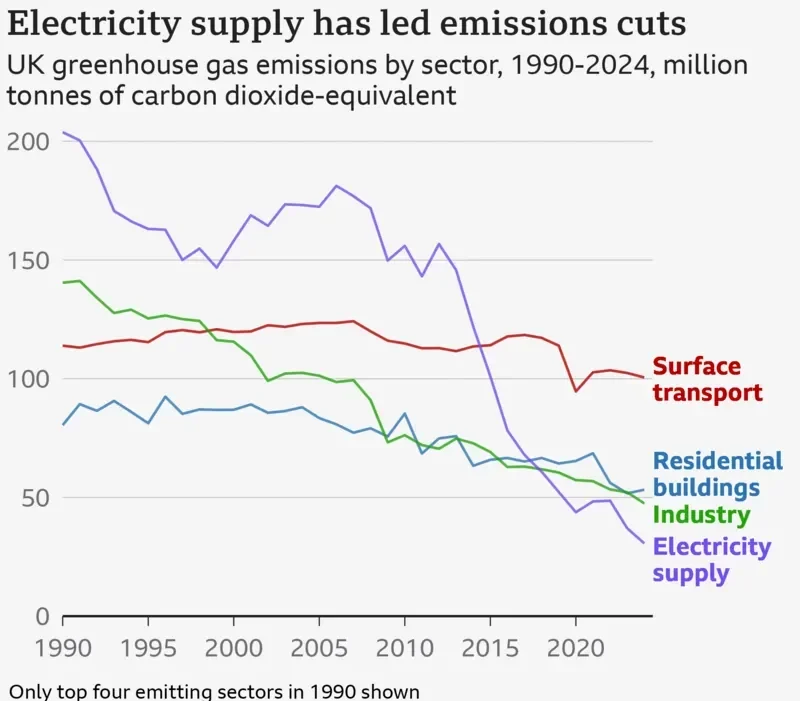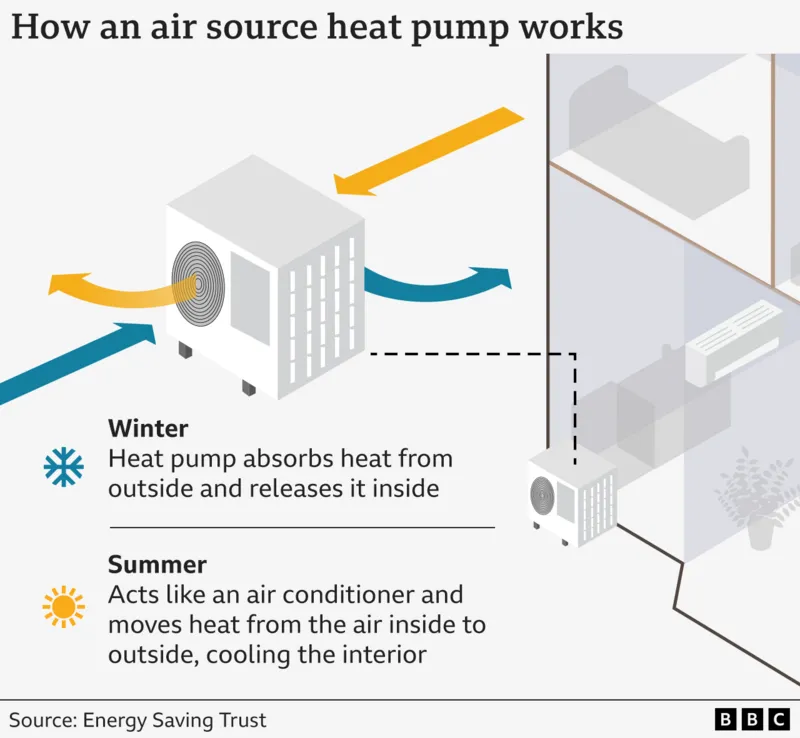By law, the UK must stop adding to the total amount of planet-warming greenhouse gases in the atmosphere by 2050. This is known as “net zero”.
Reaching net zero carbon dioxide emissions globally is essential to limit global warming.
Previous political consensus around the UK’s target has broken down, however, with Conservative leader Kemi Badenoch branding it “impossible” and Reform using the phrase “net stupid zero”.
But the committee argues it is achievable and could lead to long-term economic benefits.
“[The UK] can absolutely meet net zero by 2050,” said Ms Pinchbeck.
Greenhouse gas emissions within the UK’s borders have already fallen by more than half since 1990.
But that’s mostly because polluting fossil fuels – particularly coal – have been increasingly replaced with renewable energy like wind and solar for electricity generation.

The UK’s biggest emitters last year were transport and buildings, which will also need to get cleaner to help reach net zero.
The CCC sees signs of progress, including a near doubling of the number of electric cars on UK roads in the past two years. Nearly one-in-five new cars sold in 2024 was electric.
This has helped to reduce emissions from transport – not counting planes and ships – for the second year in a row, even though traffic levels rose last year.
While new electric cars remain more expensive to buy than their petrol equivalents, the CCC expects them to cost the same in a couple of years.
Many second-hand models are already as cheap, and electric cars can be more economical to run too.
“We see these transitions happen surprisingly fast once they get going, usually starting slowly and accelerating rapidly, where falling prices and rising demand reinforce each other,” said Dr Emily Nurse, the CCC’s head of net zero.
“When that’s combined with effective policy, it really can lead to this rapid change.”




